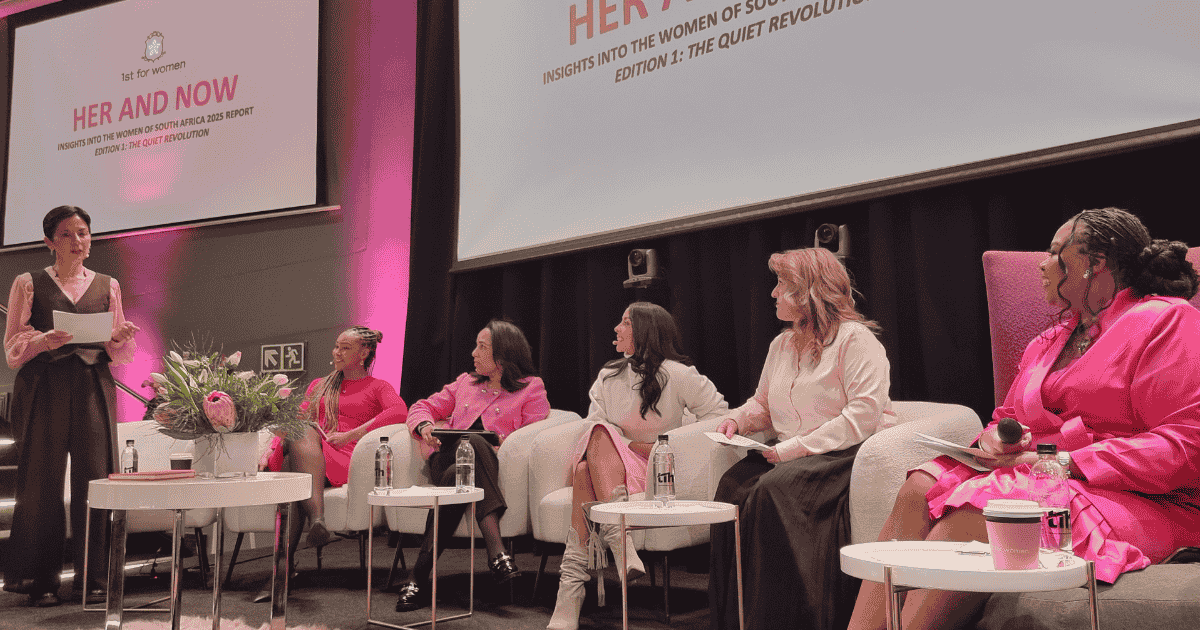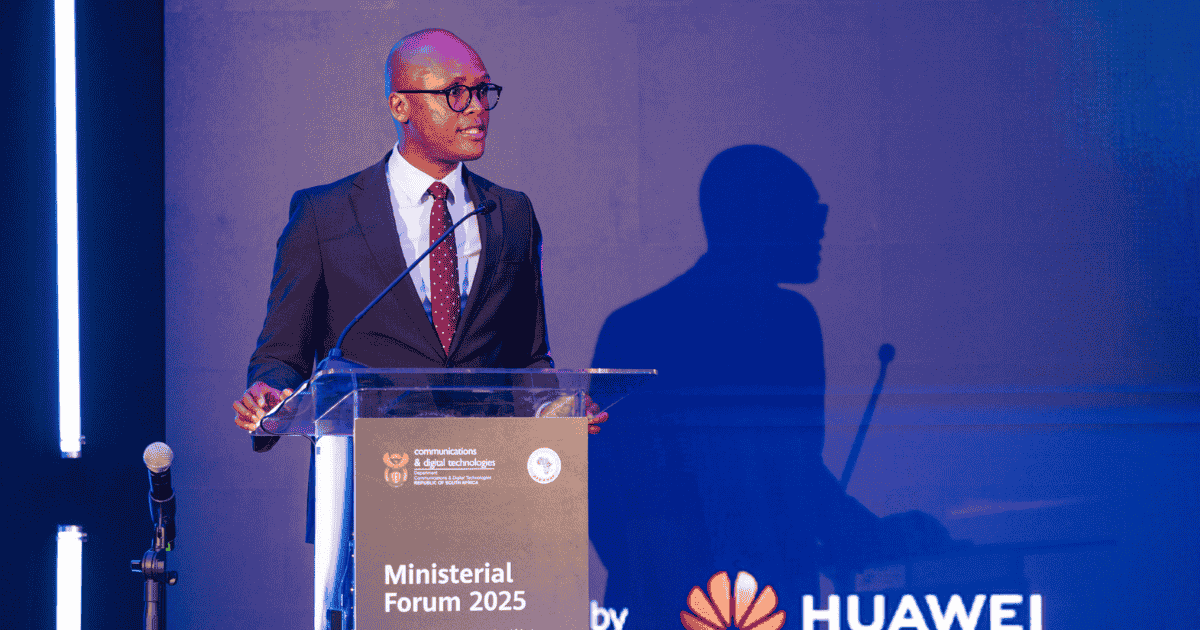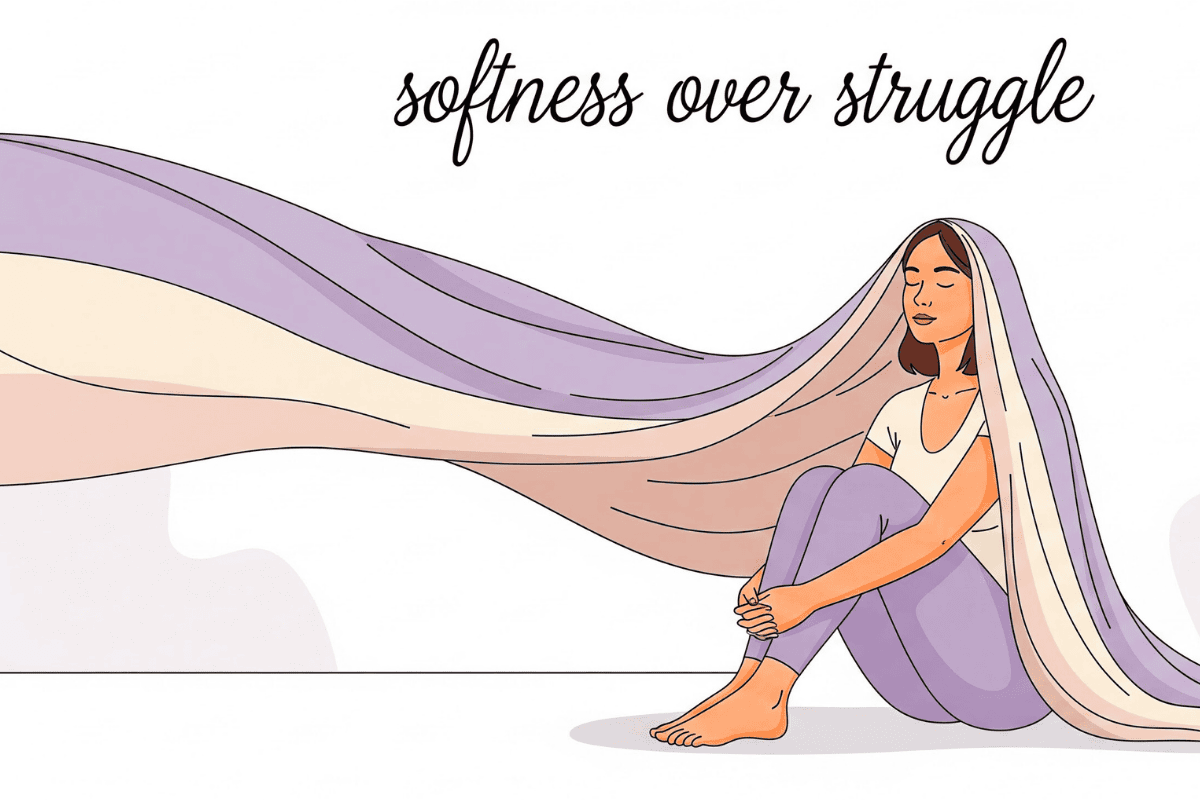Power isn’t always loud. Sometimes it looks like saying no, choosing peace, or adding joy to your to-do list. That’s the message running the Her and Now: Insights into the Women of South Africa 2025 report, subtitled The Quiet Revolution[1].
The report, released just before Women’s Day, takes a hard look at what South African women value, fight for, and carry every day.
South African women live a profound, emotional duality. We are simultaneously more empowered, and more exhausted than ever before.
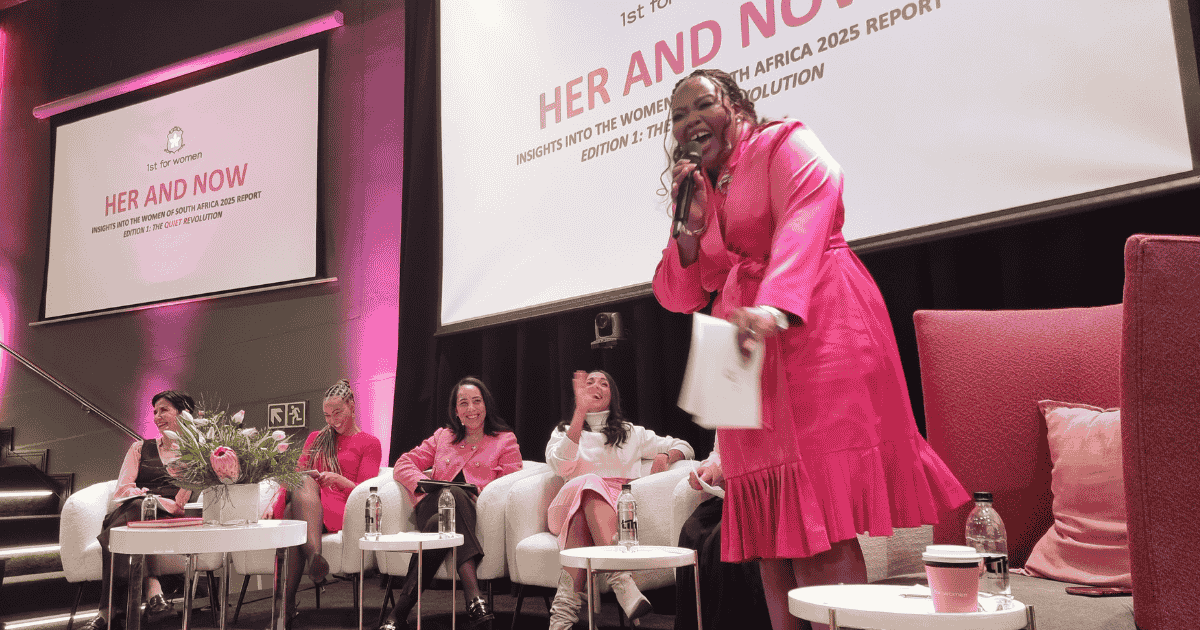
While we celebrate “strength”, it’s also silently crushing us. Despite being praised for resilience, we are rewarded with burnout.
‘Her and Now’ panel
The launch of the report (released by 1st For Women) felt less like a corporate reveal and more a rallying point.
Anele Mdoda set the tone immediately, weaving her own burnout story into the conversation. She says it’s a misconception that “being busy is being effective.”
At the centre of the research was Dr Reitumetse Mpholle, Senior Manager of Insights and Research Initiatives. She distilled more than 200 pages of research into clear, striking insights.
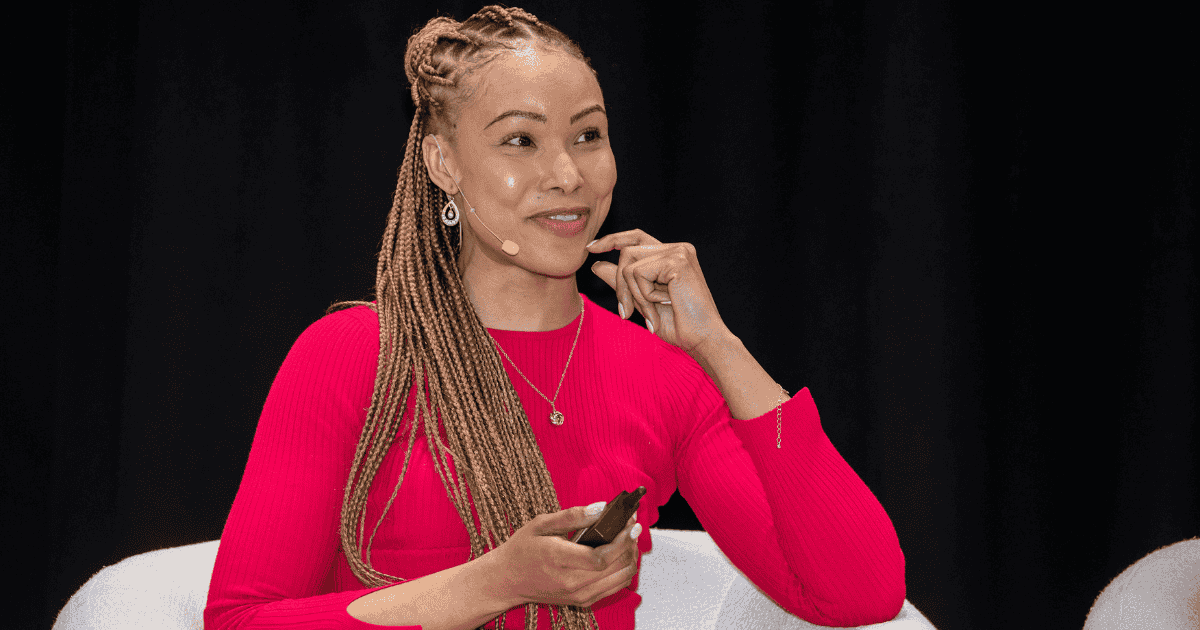
Jill Snijman, Head of Marketing, co-authored the foreword and admitted the research forced a rethink of how they engage women.
Seugnette van Wyngaard, Head of 1st for Women, reminded the room that women have aspirations going beyond tokenism. We are no longer interested in being “the first woman to” anything, we just want the achievement to stand without the qualifier.
She also called out the brands that dust off their women’s empowerment campaigns once a year, stating plainly that real support is year-round.
Storm Mhlambi, Senior Manager of Liabilities, explained that for professional women and entrepreneurs, risk is not only financial but deeply personal. It encompasses a fear of failure.
Jenny Le Grange, Head of Liabilities for 1st for Women Business Insurance, tackled what she called the “power paradox”: the tension between professional seriousness and joy.
She noted the steady rise of women breaking into industries still stamped as “male-dominated,” like transport and construction.

The quiet ‘Her and Now’ rebellion
Across the country, women are quietly rewriting what power looks like.
Strength doesn’t have to mean constant hustle; softness is on the table too. It’s about protecting peace, putting joy on the calendar, and treating “no” as an act of self-preservation.
According to the report, 58% of women strongly agree that pausing to breathe is just as important as working hard.
Yet 43% rarely get time alone, and only 11% now link success to climbing a career ladder. Far more see it as financial security (45%) or a peaceful daily life (29%).
Power and exhaustion
The report shows a constant swing between feeling strong and feeling exposed. Strength, it seems, is often mistaken for wellness
Younger women speak more freely, while older women still carry years of learned silence and toughness. This divide plays out in a split reality, unfortunately:
- Freedom in the workplace,
- Old rules at home.
It’s a heavy load. 68% of women judge themselves more harshly than others do. 90% say people expect them to manage everything because they’re “resilient.”
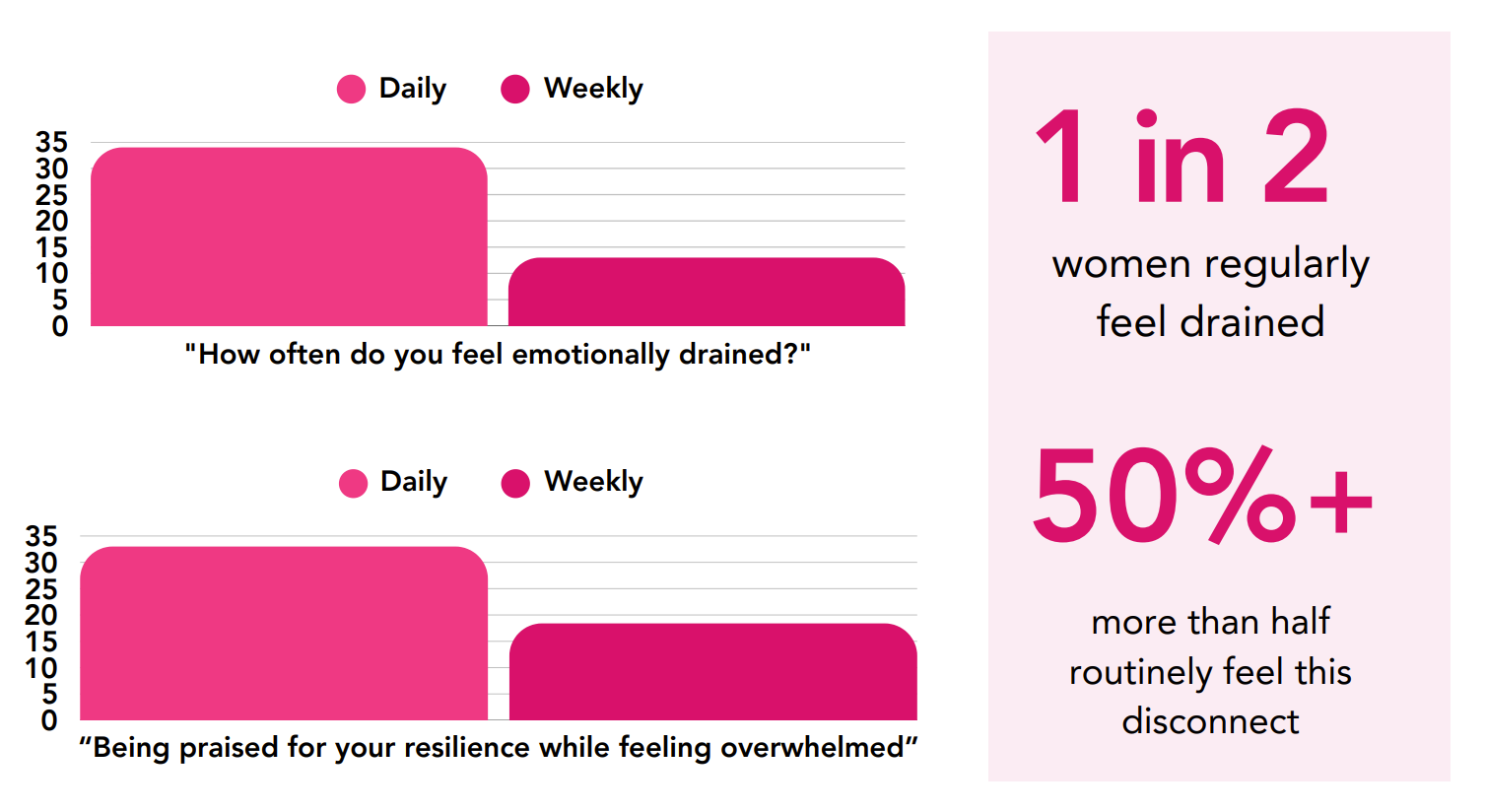
Two-thirds feel they have to keep it all together daily, and the same share say others depend on them emotionally, financially, or socially every day.
For mothers, that pressure is even higher. The cost is emotional fatigue; 34% say they feel drained every day.
Safety
Safety remains a major obstacle, especially for those of us living in South Africa, one of the most unsafe countries for women.
Only 6% feel safe outside after dark, and just 18% feel safe walking alone during the day. Even at home, nearly 9 in 10 don’t feel safe.
Let’s repeat that, actually: Nearly 9 in 10 don’t feel safe.

More than half say safety concerns stop them from doing certain activities. Only 36% feel South Africa is built for them, and nearly a quarter feel invisible in their own communities.
Money
Money is another constant stressor.
Of those surveyed, 88% believe financial freedom is key to happiness, but 75% of women cite money as their biggest source of anxiety.
Most women don’t have the resources to pursue their goals. And when they do, 64% feel guilty spending money on themselves.
Only 4% of women say joy comes without effort.
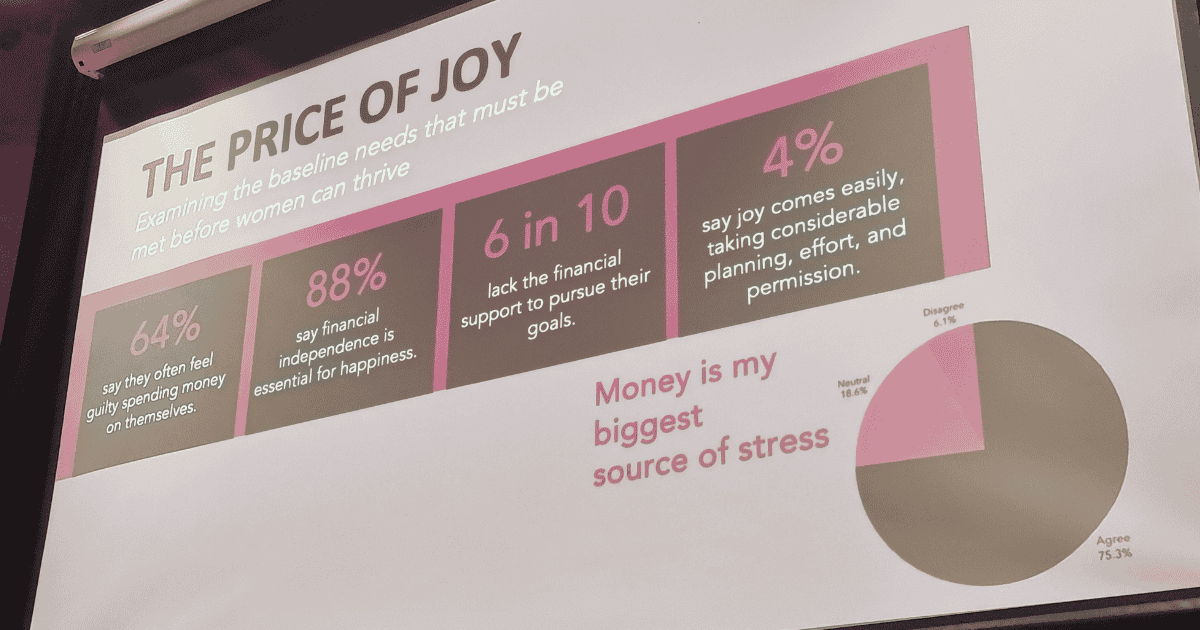
READ: Lagging behind Africa: SA’s push for women-owned businesses
Men, women, and the new sisterhood
Women want different kinds of relationships with men: less stoicism, more openness. Only 15% say the men in their lives show that vulnerability.
Over 60% believe men need to redefine what masculinity means today. Meanwhile, the bonds between women are getting stronger.
The “girl’s girl” mindset (loyalty, empathy, no judgment) is on the rise, with 97% saying they actively show up for other women.
In addition, 88% believe meaningful change will come from women themselves, starting in homes and communities rather than waiting for institutions to act.
Did men get the memo?
During the panel, I raised the question, knowing full well I’m coming as an outlier because I actually have a wonderful man who does more than half of the housework, more than me, even.
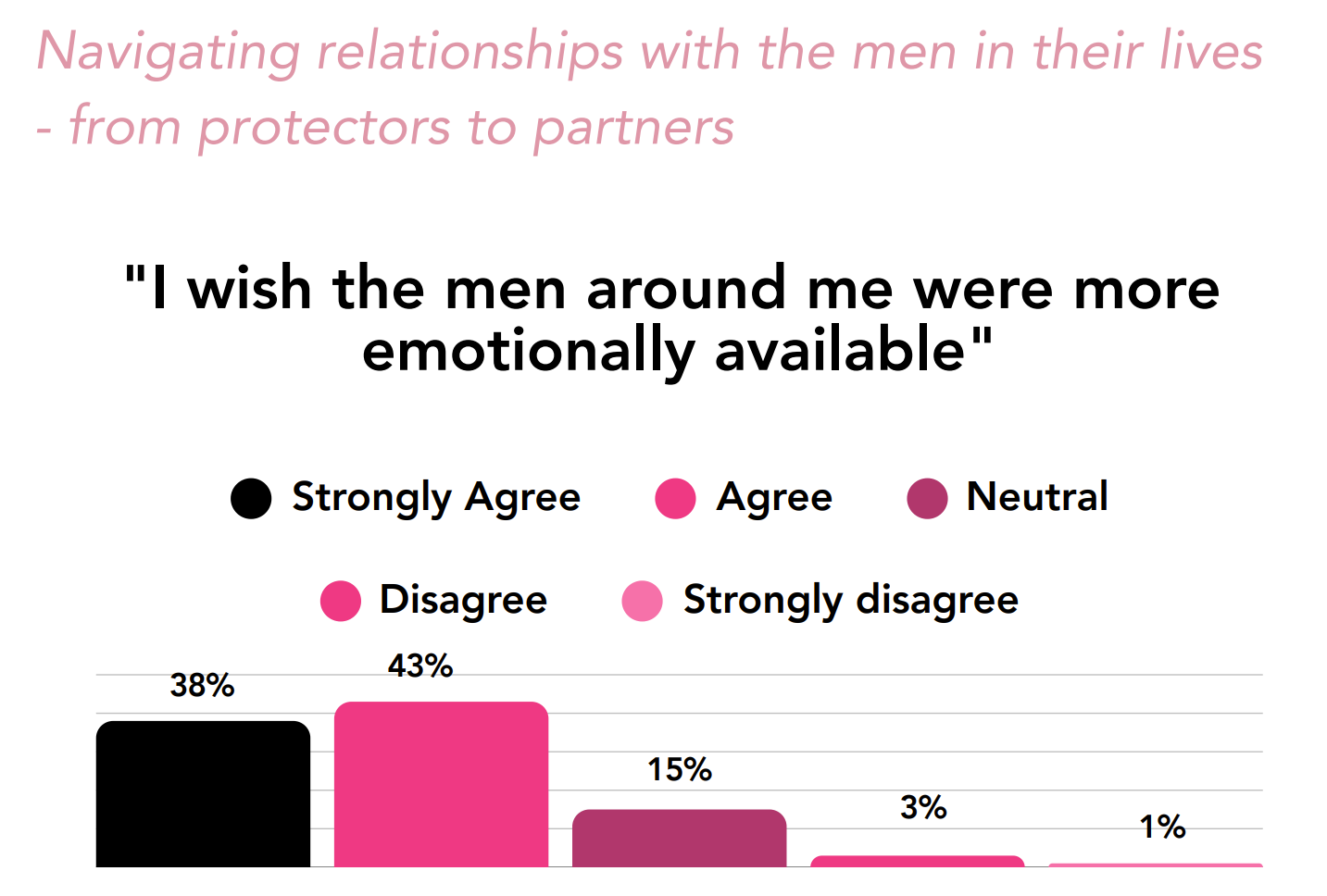
I know this particular situation isn’t affecting me, but it’s quite literally affecting every woman I know who is in a relationship:
“For years and decades, women have been told that they can do everything. They can have their careers. They can be mothers, they can do whatever they want, but men never got that memo.”
So my question was: How do we teach men in our lives that they need to do their part? Because there’s this thing called the mental load where women are seen as keeping everything together, doing everything, remembering everything.
“And men are often very willing to help if you tell them. As if you are the project manager who must still remember everything, and they just do what they are told. How do we get men to do their half or their part without thinking that they have to wait for the woman to tell them what to do?”
Men learning, women letting go of the blame
Dr Mpholle highlighted several aspects:
- Men are also on a journey of learning and unlearning, often raised as providers, which significantly impacts their mental health if they cannot fulfil this role.
- The onus to correct these gender roles is not on women (wives, mothers).
- There’s a natural progression of life where the current generation of men will phase out, making way for a new, bolder generation.
- The emergence of “stay-at-home dads” who are not embarrassed signifies a shift, despite ongoing societal judgment.
- When women “push back” on their desires, it creates a different dynamic in relationships, leading to either adjustment or realising incompatibility.
The unseen weight of the mental load
The mental load goes beyond physical chores, into the realm of covering the constant, invisible project management that keeps a household running.
It’s remembering the dentist appointment, noticing the milk is almost finished, planning meals, keeping track of birthdays, school events, and anticipating needs before anyone else does.
Research shows this cognitive burden falls disproportionately on women, even in households where men “help.”
The African Research Society[2] study notes how this unequal distribution impacts mothers’ mental health, leading to chronic stress, burnout, and reduced life satisfaction.
Meanwhile, an SSRN research paper[3] expands on this, showing that women often manage not just their own mental load but also their partner’s. Think: organising, delegating, and following up on tasks beyond shared household duties.
I mentioned washing the dishes, but the issue isn’t limited to that. It starts with noticing and remembering that the dishes need to be washed in the first place. And then doing something about it.
This constant state of alertness drains emotional energy, leaving little room for rest or self-focus. Until the mental load (and not just the chores) is shared, the balance between genders will remain an illusion.
1st for Women’s next steps
The report is intended to guide how 1st for Women’s future expands their mission. That includes tackling safety, financial stability, emotional health, and personal empowerment in practical ways.
A new campaign is coming soon, to highlight women’s realities with empathy. For business clients, that includes policy benefits like social media setup, digital marketing support, debt collection help, and safe rides home.
Special insurance products for professional women aim to protect assets and reputations, reducing the fear of failure and freeing women to enjoy life.
The 1st for Women Foundation, active since 2005, continues its work against gender-based violence for all women, not just customers.
Even non-customers can use the brand’s safety app with a built-in panic button.
The research for ‘Her and Now’ was carried out with Culture Foundry Co. over five months, collecting insights from more than 4,000 South African women, though the report acknowledges potential limitations such as self-selection bias and reliance on online channels.
References:
[1] 1st for Women, & Mpholle, R. (2025). Her and Now: Insights into the Women of South Africa 2025: Edition 1: The Quiet Revolution (R. Mpholle, Lead researcher) [PDF]. 1st for Women.
[2] Editor, A. M. (August 25, 2024). Understanding the Hidden Cognitive Load of Household Chores: How Unequal Distribution Impacts Mothers’ Mental Health. African Researchers Magazine (ISSN: 2714-2787).
[3] Barigozzi, F., Biroli, P., Monfardini, C., Montinari, N., Pisanelli, E., & Vitellozzi, S. (2024). Beyond time: Unveiling the invisible burden of mental load. Social Science Research Network.

